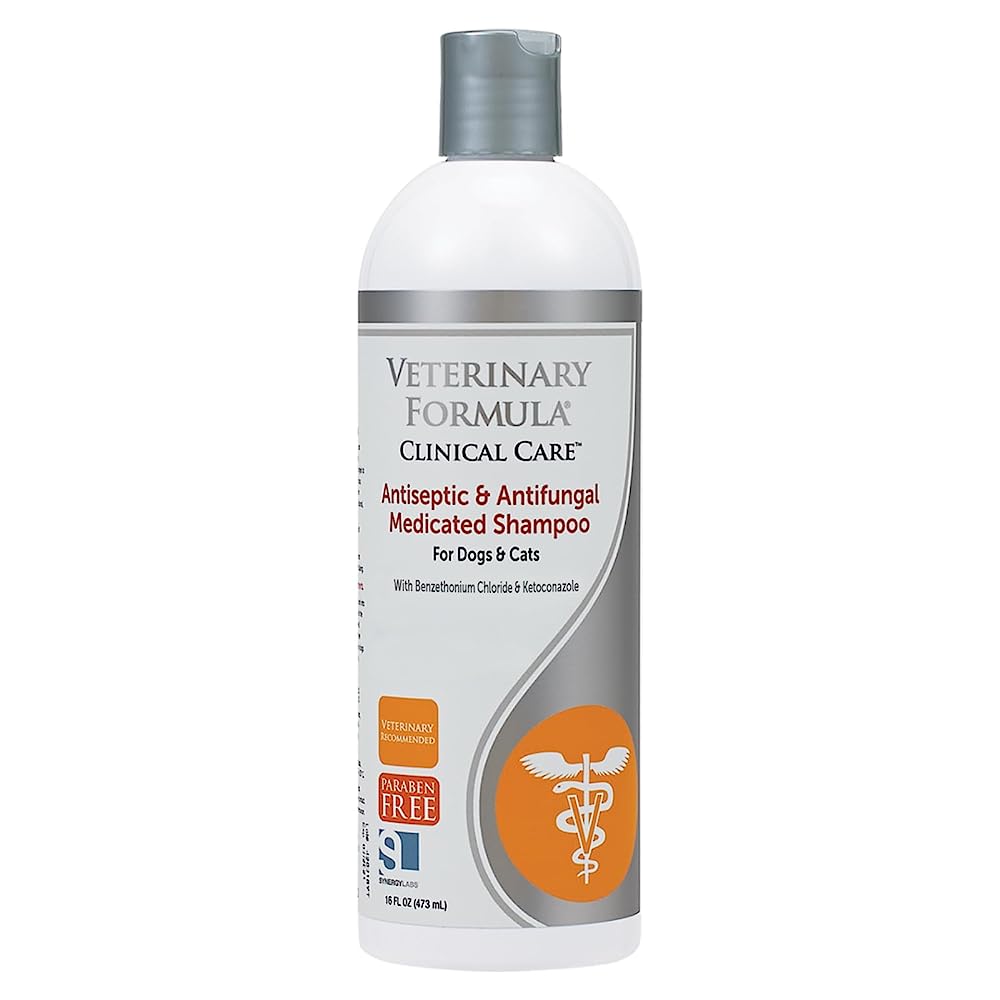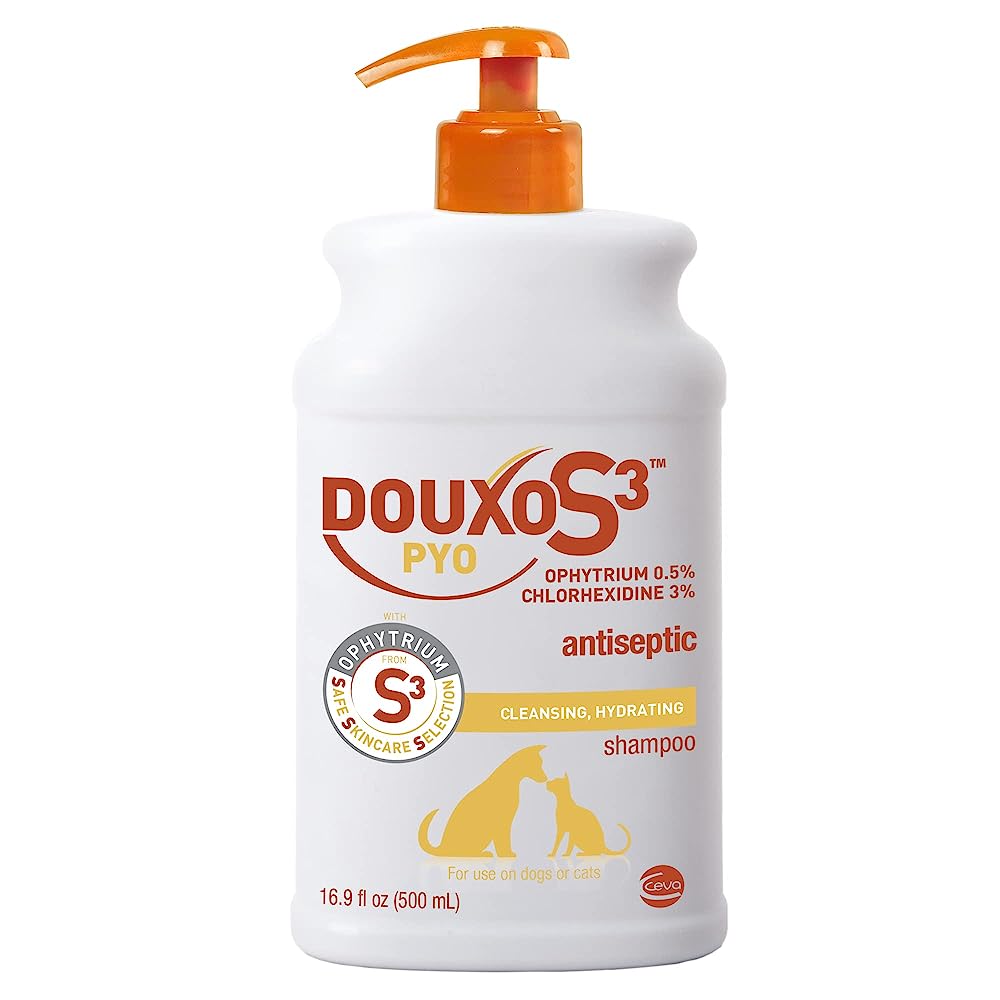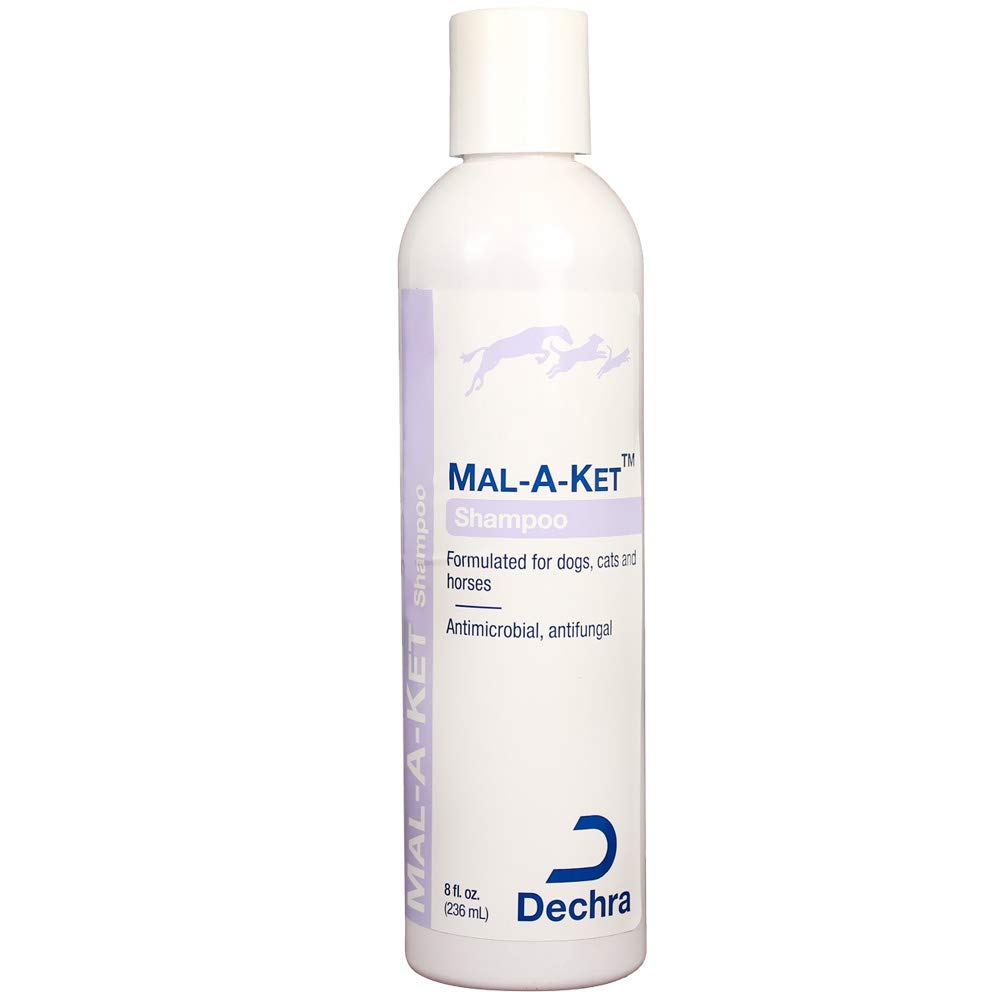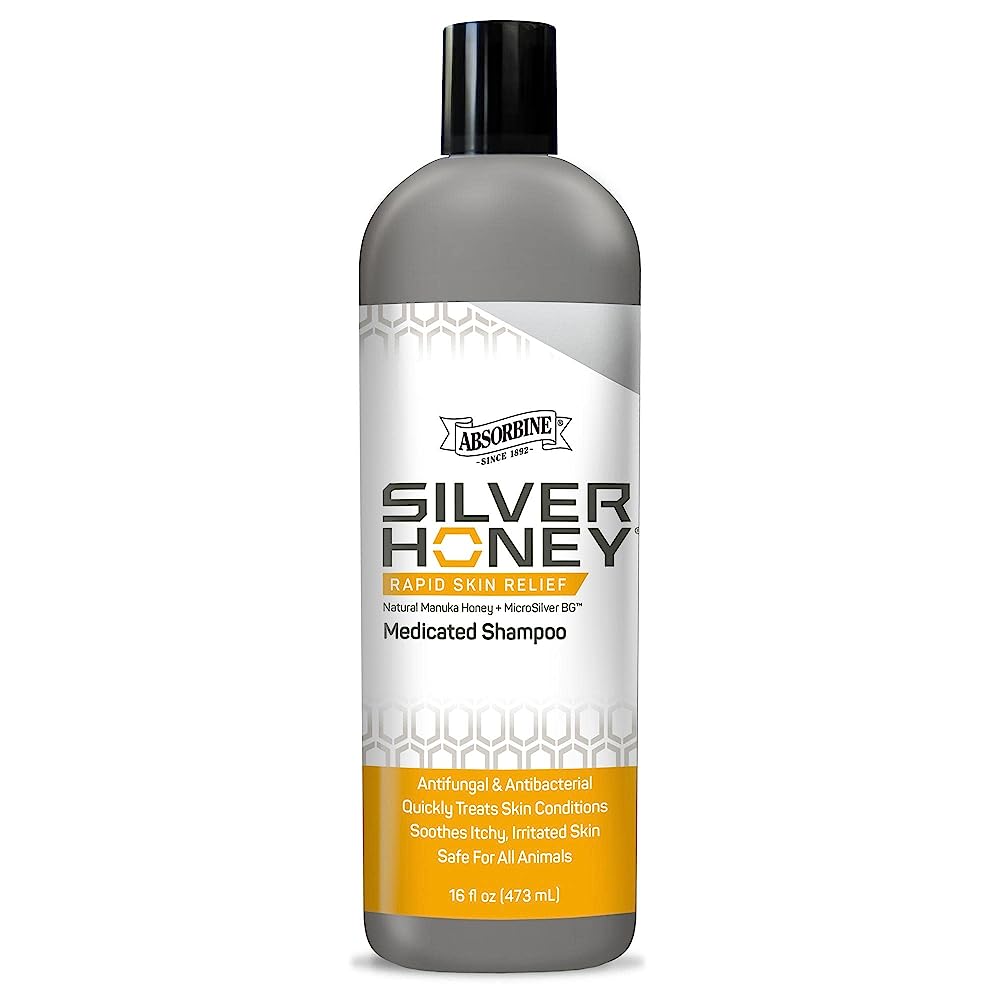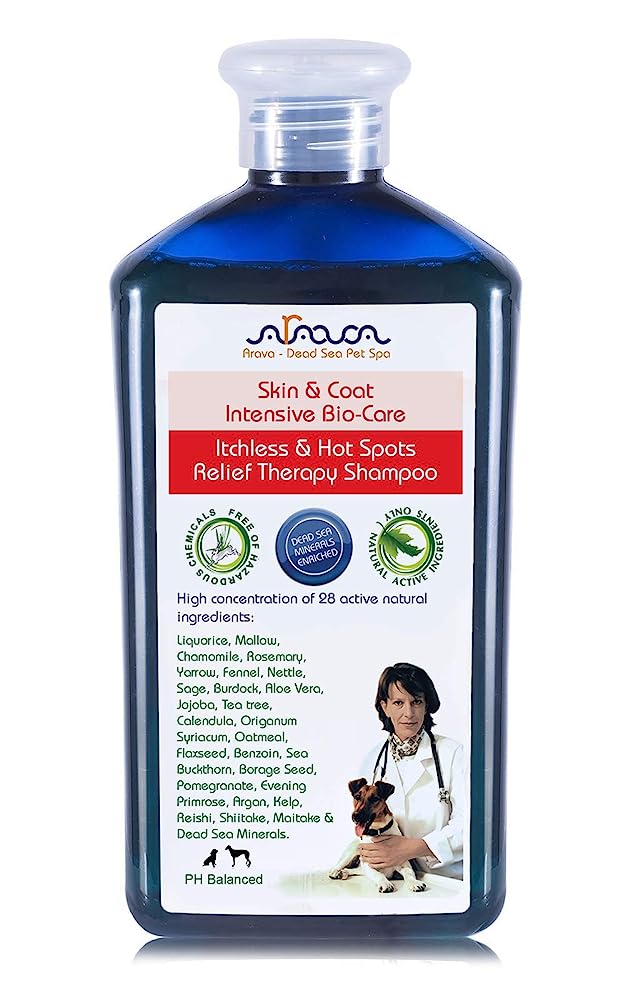When it comes to maintaining your dog’s health, addressing skin conditions promptly and effectively is crucial. A common concern for many dog owners is the presence of fungal infections, which can cause a range of skin issues from mild irritation to severe discomfort. To help manage and treat these infections, one of the most beneficial tools at your disposal is an antifungal shampoo. This article will provide an overview of the top antifungal shampoos for dogs available on the market, considering factors such as effectiveness, ingredients, and user reviews.
#1 – Veterinary Formula Clinical Care Antiseptic and Antifungal Medicated Shampoo for Dogs & Cats, 16oz – Helps Alleviate Scaly, Greasy, red Skin – Paraben, Dye, Soap-Free
The Veterinary Formula Clinical Care Antiseptic and Antifungal Medicated Shampoo for Dogs & Cats is a pH balanced and vet-recommended shampoo that helps alleviate red, scaly, greasy, or smelly skin in pets. It works quickly to soothe sensitive skin and promote overall skin and coat health, without containing parabens, dyes, or damaging detergents. This product is intended for topical use only and should be used on pets over 12 weeks of age, following the directions carefully and conducting a patch test before use.
#2 – Davis Miconazole Pet Shampoo, 12 Oz
The Davis Miconazole Pet Shampoo is a product that offers relief from symptoms of fungal infections in pets. This shampoo effectively helps eliminate scaling caused by seborrhea and contains 2 percent colloidal oatmeal to provide moisture and soothing relief. It is free from dyes and fragrances and comes in a convenient 12-ounce size.
#3 – Douxo S3 PYO Shampoo 16.9 oz (500 mL)
The Douxo S3 PYO Shampoo is a popular non-prescription topical brand recommended by veterinarians for pets with infections and inflammatory skin conditions. It has been proven to disinfect, hydrate, and support the skin’s ecosystem, reducing yeast counts in just 7 days. The shampoo is free from harsh ingredients such as soaps, sulfates, parabens, dyes, and nanoparticles, making it gentle and suitable for regular use. For optimal results, it is suggested to use in combination with the DOUXO PYO Mousse.
#4 – Dechra Mal-a-ket Shampoo for Cats and Dogs 8 oz
The Dechra Mal-a-ket Shampoo is a medicated shampoo designed for cats, dogs, and horses. It provides antifungal, antibacterial, deodorizing, and degreasing qualities, thanks to its ingredients like 2% Chlorhexidine and 1% ketoconazole. This shampoo aims to support healthy skin for animals with conditions that are responsive to these active ingredients.
#5 – Absorbine Silver Honey Rapid Skin Relief Medicated Shampoo, Medical Grade Manuka Honey & MicroSilver BG, Rejuvenating, Soothing & Hydrating, 16 fl oz
The Absorbine Silver Honey Rapid Skin Relief Medicated Shampoo is a vet-developed product made with natural ingredients like MicroSilver BG and Manuka Honey. It is pH balanced and free from fragrances, parabens, sulfates, alcohol, antibiotics, and steroids. While designed for horses, it is safe for use on all species and is recommended to be used in conjunction with Silver Honey ointment or spray gel for optimal results.
#6 – Arava Natural Medicated Dog Shampoo – Anti-Yeast Anti Itch Dog Shampoo – Healthy Skin & Coat – First Aid in Hot Spots Ringworm Scrapes Abrasions & Dermatologic Infections
The Arava Natural Medicated Dog Shampoo is formulated with Dead Sea Minerals and 28 natural ingredients to address skin problems and irritations in dogs. It deep cleanses the undercoat, reduces skin infections, and leaves a light, fresh scent. However, it should not be used if the dog has allergies to any of the natural ingredients.
Tips for Choosing a Quality Antifungal & Anti-Yeast Medicated Shampoo for Your Dog
Choosing a quality antifungal and anti-yeast medicated shampoo for your dog requires careful consideration of several factors:
- Ingredients: Look for active ingredients like ketoconazole, miconazole, or chlorhexidine, which are effective against yeast and fungi. Some shampoos also contain soothing elements such as aloe vera or oatmeal to alleviate skin irritation.
- Skin Sensitivity: If your dog has sensitive skin, avoid shampoos with artificial fragrances or colors, which can trigger allergic reactions. Opt for hypoallergenic formulations instead.
- Vet’s Recommendation: Always consult your vet before starting any new treatment. They can recommend suitable options based on your dog’s specific needs and medical history.
- User Reviews: Check reviews from other dog owners. This can give you an idea about the product’s effectiveness and potential side effects.
- pH Balanced: Dogs’ skin has a different pH level than humans, so it’s important to choose a shampoo specifically formulated for dogs. pH-balanced shampoos help maintain your dog’s natural skin barrier against infections.
Remember, while antifungal and anti-yeast shampoos can help treat and manage skin conditions, they are not a substitute for proper veterinary care. If symptoms persist or worsen, seek professional veterinary assistance.
What Are Some Reasons to Use an Antifungal Shampoo for Your Dog?
There are several reasons why you might need to use an antifungal shampoo for your dog:
- Yeast Infections: Dogs can develop yeast infections on their skin, often due to a compromised immune system, humidity, or allergies. Antifungal shampoos can help control yeast overgrowth and soothe the associated itching and inflammation.
- Ringworm: This is a common fungal infection in dogs that can cause circular patches of hair loss. Antifungal shampoos can be part of the treatment regimen to help eliminate the fungus.
- Seborrheic Dermatitis: This condition can cause a dog’s skin to become greasy and scaly, and it’s often associated with yeast overgrowth. Antifungal shampoos can help manage the condition.
- Preventative Care: If your dog frequently swims or is exposed to damp environments, an antifungal shampoo can help prevent potential fungal or yeast infections.
- Other Skin Conditions: Various other skin conditions like hot spots, dandruff, or certain types of dermatitis can sometimes benefit from the use of an antifungal shampoo.
However, before starting any new treatment regimen, it’s important to consult with your veterinarian. They can diagnose your dog’s condition accurately and recommend the most effective treatment options, including whether an antifungal shampoo would be beneficial.
Frequently Asked Questions About Antifungal Shampoos for Dogs
- What is an antifungal shampoo for dogs? Antifungal shampoo is a specially formulated product that can help treat and prevent fungal infections on a dog’s skin. It usually contains ingredients like ketoconazole or miconazole that kill fungi, along with soothing elements like oatmeal or aloe vera to relieve itching and inflammation.
- When should I use an antifungal shampoo for my dog? Antifungal shampoos are used when your dog has a fungal infection, such as yeast dermatitis or ringworm. If your dog is excessively scratching, has a bad odor, or visible skin abnormalities, consult with your veterinarian. They may recommend using an antifungal shampoo as part of the treatment plan.
- How often should I use an antifungal shampoo on my dog? The frequency depends on the severity of your dog’s condition and your vet’s instructions. Generally, most antifungal shampoos are recommended to be used once or twice a week until the infection is under control.
- Can antifungal shampoo harm my dog? If used correctly and as instructed by a veterinarian, antifungal shampoo should not harm your dog. However, it’s crucial to avoid getting the shampoo in your dog’s eyes or mouth. If your dog shows any signs of an allergic reaction, such as increased itching, redness, or difficulty breathing, stop using the product and contact your vet immediately.
- Can I use human antifungal shampoo on my dog? Generally, it’s not recommended to use human products on dogs. Human shampoos, including antifungal ones, have a different pH level than dog shampoos, which can upset the balance of your dog’s skin and make conditions worse. Always use a product specifically designed for dogs unless directed otherwise by your vet.
- How long does it take for antifungal shampoo to work on my dog? The duration of the treatment depends on the type and severity of the infection. Some improvements may be seen within a week or two, but some conditions might take a few weeks to a few months to fully resolve. Follow your vet’s guidance on the treatment duration.
- Is antifungal shampoo enough to treat my dog’s skin infection? While antifungal shampoo can be an effective part of treatment, often, it’s used in conjunction with other treatments such as oral medications or topical creams. Your vet will provide a comprehensive treatment plan based on your dog’s specific needs.
- Can I use antifungal shampoo as a preventative measure? If your dog is prone to fungal infections, your vet might recommend using an antifungal shampoo periodically as a preventative measure. However, it should not replace regular vet check-ups and a balanced diet to support your dog’s overall health.
- Does my dog need a prescription for antifungal shampoo? While some antifungal shampoos are available over the counter, others require a prescription from your vet. If your dog is showing symptoms of a fungal infection, it’s best to consult your vet before starting any treatment.
- Can I use antifungal shampoo on a puppy? Puppies have more sensitive skin than adult dogs, and not all products are safe or suitable for them. Always check the label of any shampoo to see if it’s safe for puppies, and if in doubt, consult with your vet.
Conclusion: Best Antifungal Shampoos for Dogs
In conclusion, treating your dog’s fungal infections doesn’t have to be a daunting task with the right tools at hand. Antifungal shampoos can serve as a practical, accessible solution for managing these conditions. However, as every dog is unique, finding the right shampoo requires considering your pet’s specific needs, allergies, and sensitivities. Remember, while these shampoos can alleviate symptoms and combat fungi, they are not a substitute for professional veterinary advice. Always consult with your vet before starting any new treatment regimen.

